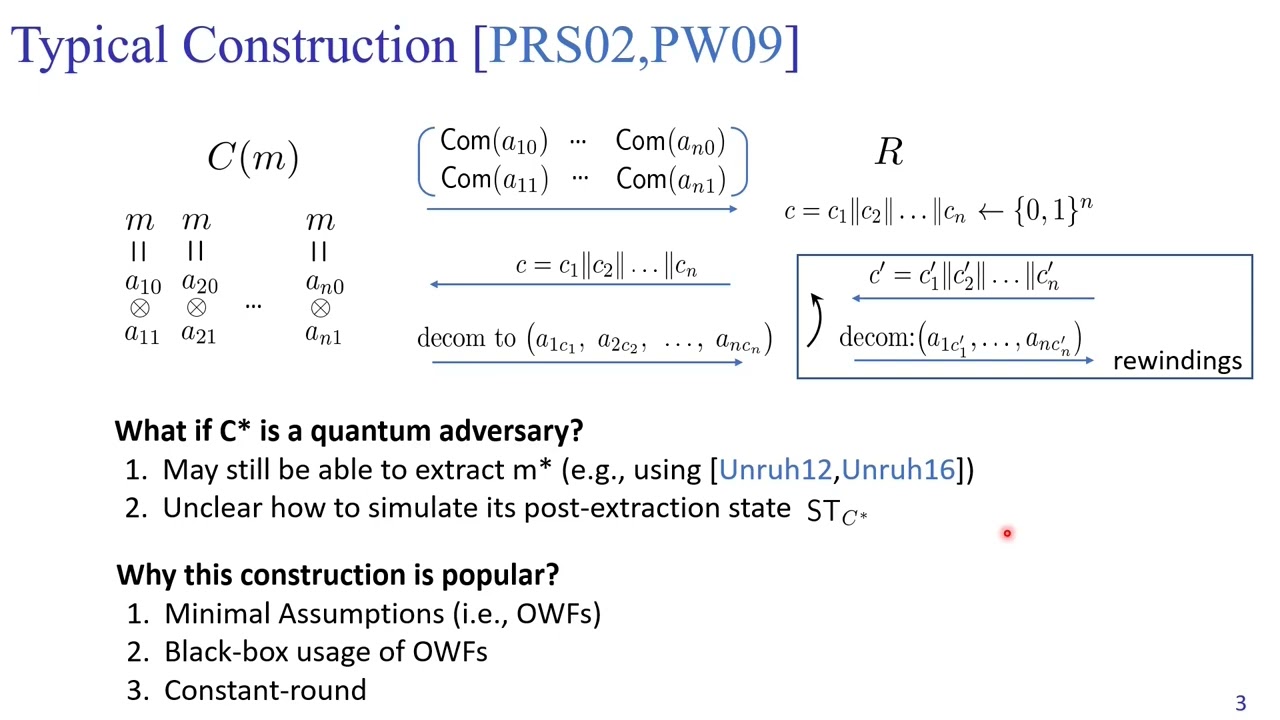Welcome to the resource topic for 2021/1516
Title:
Post-Quantum Simulatable Extraction with Minimal Assumptions: Black-Box and Constant-Round
Authors: Nai-Hui Chia, Kai-Min Chung, Xiao Liang, Takashi Yamakawa
Abstract:From the minimal assumption of post-quantum semi-honest oblivious transfers, we build the first \epsilon-simulatable two-party computation (2PC) against quantum polynomial-time (QPT) adversaries that is both constant-round and black-box (for both the construction and security reduction). A recent work by Chia, Chung, Liu, and Yamakawa (FOCS’21) shows that post-quantum 2PC with standard simulation-based security is impossible in constant rounds, unless either NP \subseteq BQP or relying on non-black-box simulation. The \epsilon-simulatability we target is a relaxation of the standard simulation-based security that allows for an arbitrarily small noticeable simulation error \epsilon. Moreover, when quantum communication is allowed, we can further weaken the assumption to post-quantum secure one-way functions (PQ-OWFs), while maintaining the constant-round and black-box property. Our techniques also yield the following set of constant-round and black-box two-party protocols secure against QPT adversaries, only assuming black-box access to PQ-OWFs: - extractable commitments for which the extractor is also an \epsilon-simulator; - \epsilon-zero-knowledge commit-and-prove whose commit stage is extractable with \epsilon-simulation; - \epsilon-simulatable coin-flipping; - \epsilon-zero-knowledge arguments of knowledge for NP for which the knowledge extractor is also an \epsilon-simulator; - \epsilon-zero-knowledge arguments for QMA. At the heart of the above results is a black-box extraction lemma showing how to efficiently extract secrets from QPT adversaries while disturbing their quantum state in a controllable manner, i.e., achieving \epsilon-simulatability of the post-extraction state of the adversary.
ePrint: https://eprint.iacr.org/2021/1516
Talk: https://www.youtube.com/watch?v=ILjSX4bzao8
Slides: https://iacr.org/submit/files/slides/2022/crypto/crypto2022/286/slides.pptx
See all topics related to this paper.
Feel free to post resources that are related to this paper below.
Example resources include: implementations, explanation materials, talks, slides, links to previous discussions on other websites.
For more information, see the rules for Resource Topics .
